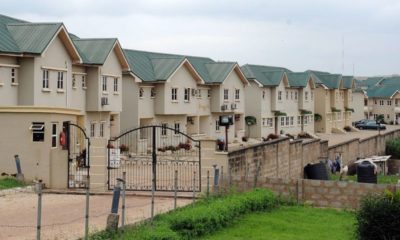- PTAD Pays Pensioners N102.8bn in 15 Months
Between January 2018 and March 2019, a total of N102.82bn was paid by the Federal Government through the Pension Transitional Arrangement Department to pensioners in the public sector.
The Executive Secretary, PTAD, Sharon Ikeazor, disclosed this in a speech delivered at the agency’s North Central stakeholders forum on Thursday, in Abuja.
She said that the release of the fund to pensioners was a demonstration of the commitment of the Federal Government to make life easier for pensioners.
A breakdown of the figure showed that the highest amount of N59.97bn was utilised to fund Parastatal Pension Department in the 15-month period. Out of this amount, the sum of N45.05bn was utilised in 2018 while the balance of N14.92bn was spent in the first quarter of this year.
For Civil Servants Pension Department, the sum of N26.4bn was released during the period made up of N21.21bn for 2018 and N5.19bn for the first three months of this year.
The agency also utilised the sum of N8.64bn for pension payment to Customs, Immigration and Prisons Service, out of which N6.81bn was for 2018 while the balance of N1.84bn was utilised in the first quarter of this year.
For Police pension, the sum of N7.78bn was released, out of which N6.12bn was utilised in 2018 while the balance of N1.65bn was for the first quarter of 2019.
Ikeazor described the 2018 fiscal period as a very busy year for PTAD, adding that the agency had made significant progress in ensuring regular payments of pension to retirees.
She said, “2018 was a busy year at PTAD and we dare say a successful one too. Pension payments have been regular and up-to-date.
“We concluded the Civil Service Pension Department verification and commenced the verification of the Parastatal Pension Department pensioners, starting with the defunct agencies.
“We made significant progress on the payment of the long outstanding 33 per cent arrears, which we are hopeful will soon be a thing of the past.
“Incidents of pension fraud are on the decline as we continue to create awareness and partner with the Independent Corrupt Practices and Other Related Offences Commission and the Economic and Financial Crimes Commission, to arrest and prosecute fraudsters.”
On the issue of minimum wage, she said that once the bill is assented to by President Muhammadu Buhari, it would also result in an increase in pension payment.
She said, “PTAD is working closely with all relevant agencies of government towards improved turnaround on monthly pension payment.
“The issue of increment will apply automatically once the minimum wage bill is passed into law.”
Ikeazor said that the future plans of the agency would be implemented from three main strategic priorities.
According to her, the areas to be prioritiesed are strengthening of PTAD’s institutional framework using technology; prudent and efficient resources management and sustained optimal pensioner satisfaction.
On the issue of funding, she said, “Funding to address our obligations to all our pensioners is a recurring challenge.
“We will continue to forge ahead as we have done in previous years. We are fortunate to have an administration that identifies with our vision to provide innovative and sustainable pension services to our pensioners.
“It is on this assurance that we have developed our strategic plans for the coming years.”
The Chairman, National Union of Pensioners, Dr Abel Afolayan, called on PTAD to quickly offset the 33 per cent arrears of retirees under the Parastatal Pension Department.
He said that while PTAD had been making efforts to address complaints made by pensioners, such issues were not being addressed speedily.
He commended the Federal Government for putting smiles on the faces of pensioners through prompt release of funds, noting that in his 29 years as a pensioner, he had never had it that good.
The Minister of Finance, Mrs Zainab Ahmed, said that the meeting had provided a platform for resolution of the grey areas being faced in the payment of pensions to retirees.
Represented at the event by the Director, Legal, Mr Gabriel Christopher, the minister said that the Federal Government would continue to take the issue of pension as a priority.
She commended PTAD on the way it had managed the payment of pension to Federal Government retirees under the old scheme, adding that the strategy had assisted in addressing issues of irregular payment of pension, non-receipt of pension after retirement and pension fraud.
Meanwhile, PTAD said it had concluded arrangements for the Parastatals verification exercise of 104,133 pensioners and next of kin of 270 federal funded parastatals, agencies and institutions under the Defined Benefit Scheme.
The exercise, according to a statement, would take place across the six geopolitical zones and Lagos.

 Billionaire Watch3 weeks ago
Billionaire Watch3 weeks ago
 Startups4 weeks ago
Startups4 weeks ago
 News4 weeks ago
News4 weeks ago
 News4 weeks ago
News4 weeks ago
 Bitcoin4 weeks ago
Bitcoin4 weeks ago
 Naira4 weeks ago
Naira4 weeks ago
 Forex3 weeks ago
Forex3 weeks ago
 Treasury Bills4 weeks ago
Treasury Bills4 weeks ago





















